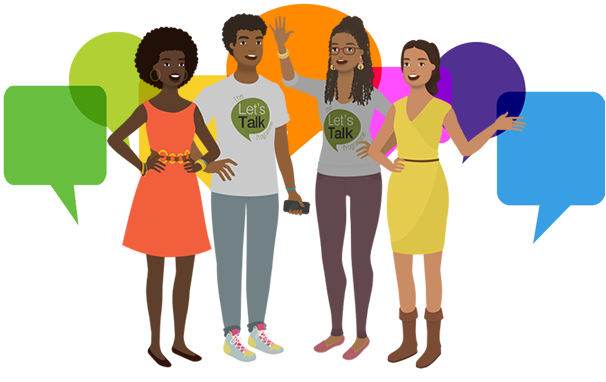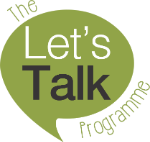What is Let’s Talk?
Let’s Talk is an evidence-informed family strengthening and HIV prevention group programme for adolescents and their caregivers. It aims to lower young peoples’ risk for HIV through an innovative family-centred model that combines HIV education and behavioural skill-building with a focus on psychological health and effective parenting.
The programme was developed in South Africa by Tulane University’s Highly Vulnerable Children Research Center (HVC-RC) and the University of Pretoria, with financial support from the Presidents Emergency Plan for AIDS Relief through USAID Southern Africa.
Programme approach
Let’s Talk goes beyond the standard elements of HIV prevention programming to address family dynamics and psychological wellbeing. In addition to building knowledge and skills to mitigate young people’s sexual risk behaviour, the programme supports adolescent and caregiver mental health and improved parenting practices. The theory of change posits that empowering both caregivers and adolescents is the best way to create positive health outcomes for adolescents and reduce their HIV risk.
Adolescents and caregivers learn skills to improve their ability to solve problems, cope with difficult emotions, resolve conflict and communicate more effectively. Ultimately Let’s Talk helps young people build knowledge and skills to make healthy decisions, including ones that will protect them from HIV.
it taught me how to understand a teenager.”
When I am angry, I can control my anger.”
thinking that they are still young for such talk... I am now able to talk to her about sex.”
not keep it to myself and have suicidal thoughts.”
Programme structure
Let’s Talk is currently offered as a 10-week programme for small groups of adolescents aged 12 and up and their primary caregivers. The programme features eight sessions for adolescents, eight for caregivers, and two joint sessions they attend together. Each 2-3 hour session features an opening ritual, home practice review, and up to four interactive exercises centred on a learning theme. Sessions end by reflecting on lessons learnt, a new home practice assignment, closing ritual and a lottery draw to encourage continued participation.
Phase 1
In phase 1, participants build emotional coping, communication and problem solving skills with a specific focus on resolving issues that arise in family life. For example, they learn cognitive behavioural therapy techniques to solve problems and recognise the link between their thoughts, emotions and behaviour in order to better cope with feelings of sadness and anger. The ultimate goal is to improve both caregiver and adolescent mental health and their relationships with each other.

Phase 2
In phase 2, adolescents and caregivers learn about HIV and STI transmission, testing and prevention and how to avoid unintended pregnancy. Interactive exercises provide adolescents with an opportunity to consider real-life situations that may put them at risk and practice skills to use when refusing sex and negotiating condom use. The focus on learning and practicing skills increases their self-efficacy for health-promoting behaviour. Meanwhile, caregivers build upon the previous sessions with exercises that emphasise communication and parenting practices that decrease adolescent sexual risk behaviour.
